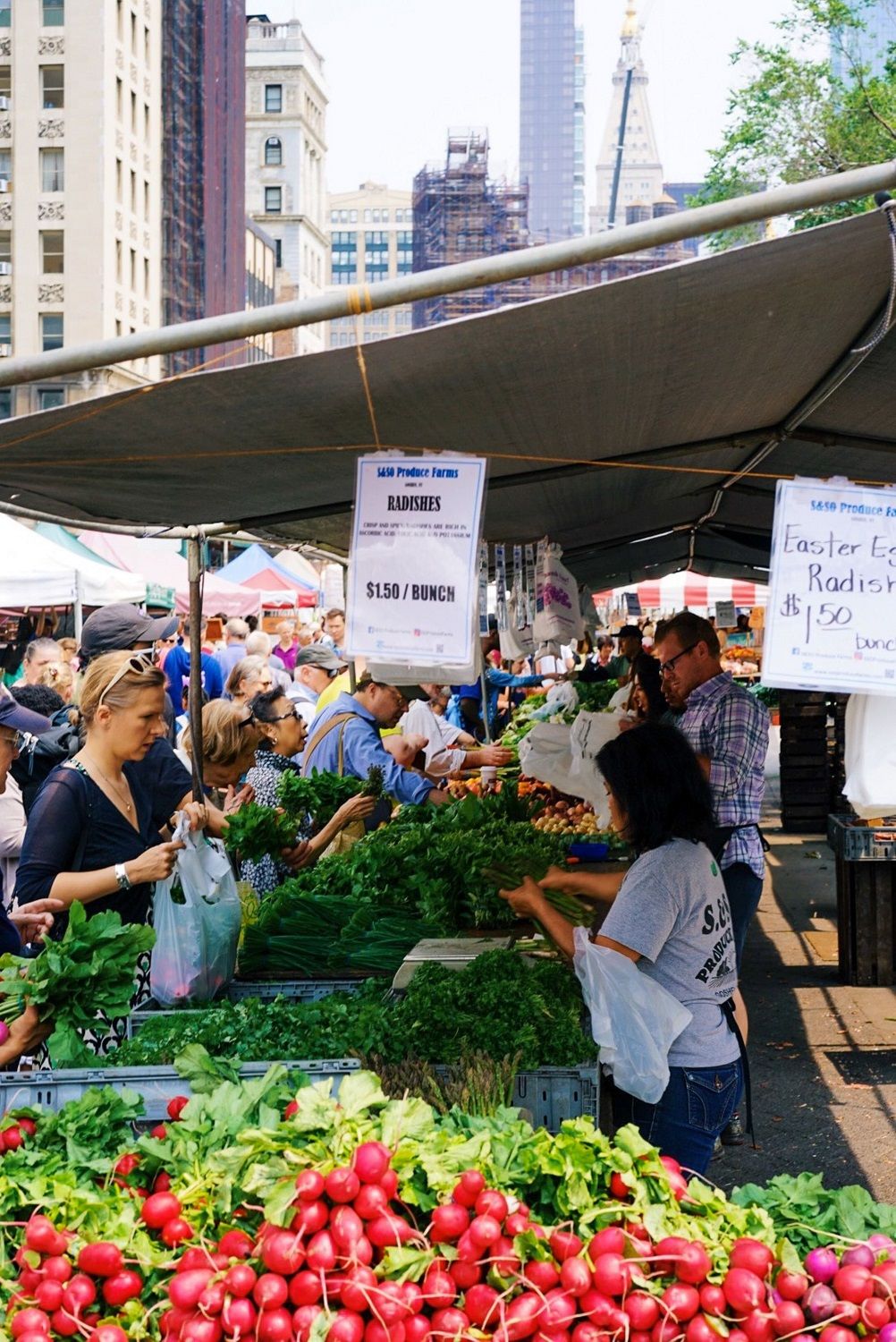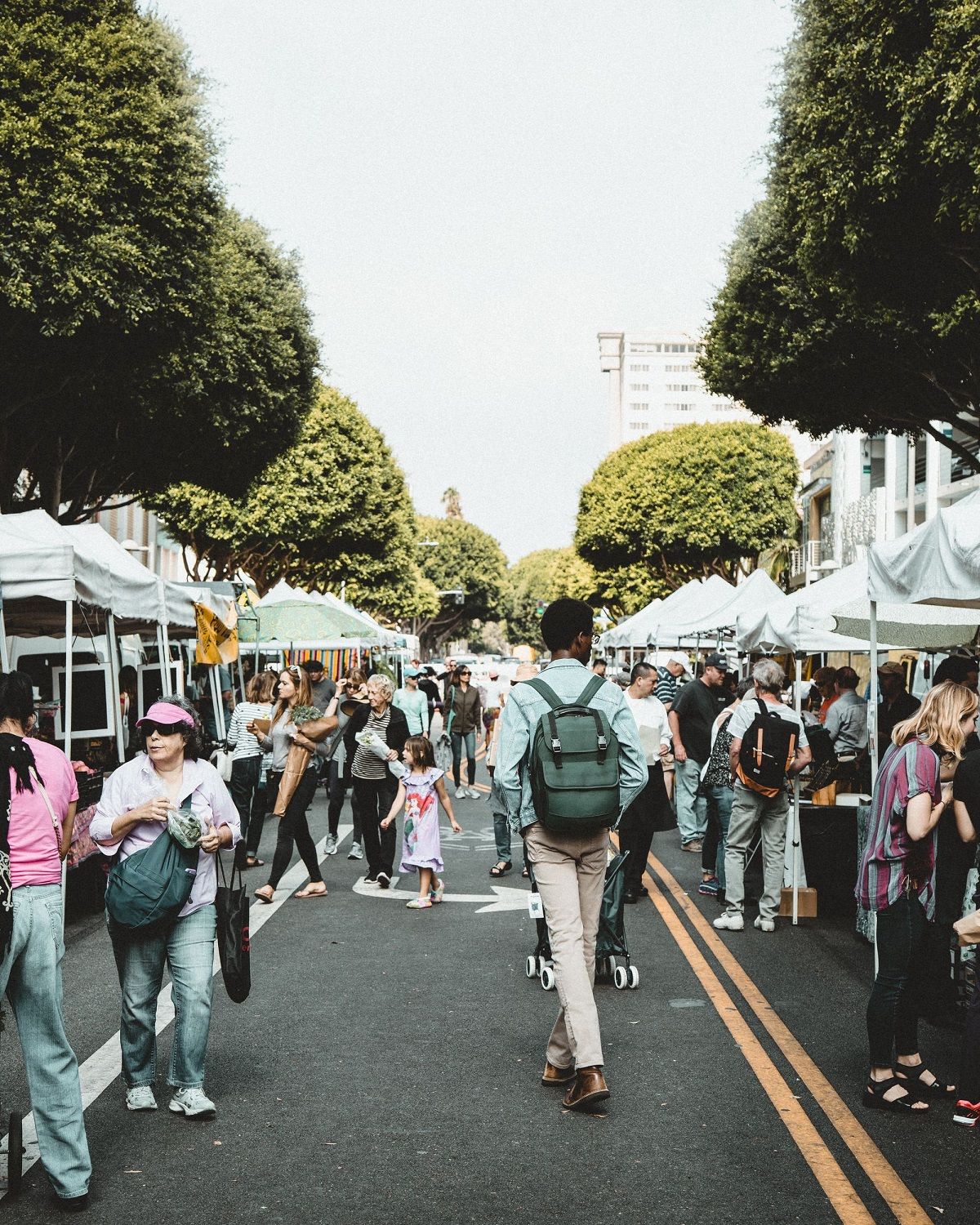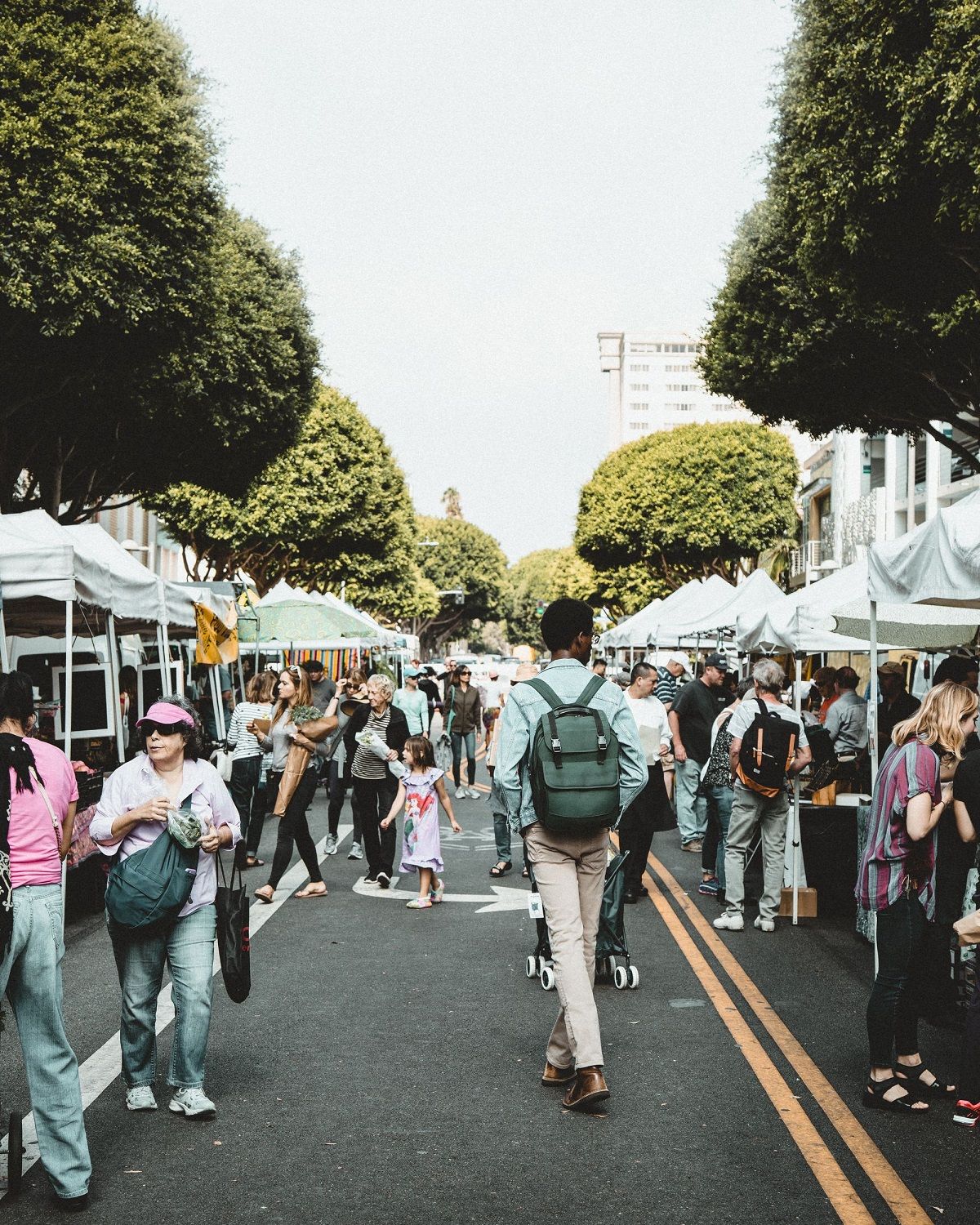“What makes a farmers’ market such a special place is that you’re actually creating community around food.”
— Bryant Terry, vegan chef and author of Vegan Soul Kitchen
Urban farmers’ markets: aren’t they great? They are truly oases of natural sustenance found in cities of food deserts and man-made industrial food systems.
At markets, you will find fresh fruits, aromatic herbs, beautiful flower bouquets, dairy products, homemade beverages in the freshest form imaginable; markets are also spaces to meet and commune with friends and the locals.
But do you know the reason behind market pricing? Do you really know their purpose? Have you considered the infrastructure and work it takes to run one?
If your answer is no, it’s not a big deal. Use this article as a guide to comprehend the roles and ways of urban farmers’ markets.

What, who, when, where, why?
Let’s look into the who, what, when, where and why about urban farmers’ markets to gain a better understanding of their role in your city.
What are farmers’ markets about? Small farmers are providing fresh foods to urban residents, and urbanites are accessing varieties of produce not found in city grocery stores. Markets are also designed to be social spaces for consumers to build personal relationships with food growers.
Who patronizes farmers’ markets? Urbanites, local farmers (urban and rural), health-conscious individuals, restaurant chefs, plant-based eaters, frugal food consumers are all part of the support system.
When do farmers’ markets happen? All year round or seasonally, depending on the city. You will often find pop-up weekend markets, too.
Where can I find a farmers’ market in my city? Squares, parks, parking lots, city sidewalks, places of worship, metro centers...
Why do they exist? The idea of the farmers’ markets is to connect urban dwellers to fresh and local food, the land, and farmers while living in a metropolitan area. They also play a role in reducing waste and resources that come with processed packaged foods.
How to navigate a farmers’ market
Farmers’ markets can be a wonderful experience — or an overwhelming one.
Here are some suggestions on how to move about in an urban farmers’ market:
- Research where the city markets locations and days of operation. NatureHub app, word of mouth, Google, Facebook, and newspapers are ideal search sources.
- Bringing a grocery list can keep you focused as you search for particular items. Know which fruits and vegetables are in season to be aware of what’s available. We’re always posting seasonal fruits and veggies lists on our Instagram and Facebook, be sure to check ’em out!
- Bring your reusable grocery bag or a tote: not only they are sustainable means of carrying your items; they also prevent condensation as well as mold allowing your produce to breathe as you shop. If you’re an arty and crafty shopper, consider sewing, knitting, or crocheting your own bags to save money on store-bought ones.
- Use market directories and maps (if applicable) to locate specific vendors and produce stands. This saves time if you want to get in and out on busy market days.
- Bring both cash and debit (credit) cards. Be aware that vendors accept particular forms of payment that support their business.
- Ask farmers if they use sustainable organic or non-organic methods to cultivate products. It’s good to know if your food is safe to eat, isn’t it? 😉

Why you could become an urban farmer, too
As a Chicago urban farmer, market patron and vendor, I have participated in the infrastructure and patronage of a local city market — and trust me, there are victories and challenges on all angles.
Infrastructure involves support, marketing, and physical setups that are hard to accomplish in a large city without reliable sources. Local and distant volunteers willing to do large and small market tasks are invaluable resources that help a market operate smoothly.
As a farmer, I have learned to listen to customer needs and have reasonable prices; not meeting clientele demand can be detrimental. Unforeseen crop loss, increased production costs, and unfavorable weather conditions are always possible therefore alternative options help.
Being a market customer allows me to support my fellow city farmers. Whatever I’m not growing I can go to a friend’s vegetable stand to purchase; it’s also great to learn about produce varieties I don’t know about and may want to grow.
Vending can be tiring yet super rewarding. Sure, packaging, transporting across the city, and table setup is taxing, but having customers purchase your items makes it all worth it.
Final thoughts
Now you have an idea of what urban farmers’ market life is like.
Do you support a local market? Are you a farmer or vendor selling at a market? What’s your take on it all? Leave your comments below!


